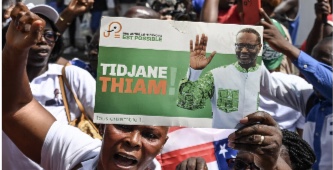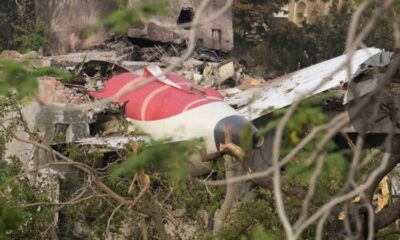News
Bad Bunny’s Embarrassing Moment with Backup Dancer Caught on Camera

In a surprising turn of events at his San Juan concert, Bad Bunny found himself in an unplanned onstage entanglement with one of his backup dancers.
During the performance of “Perro Negro,” backup performer Kiara Yamilette Rodríguez Saldívar accidentally got her tights stuck on the front of Bad Bunny’s pants, causing a brief but noticeable interruption.
The incident, captured by a fan and shared widely on TikTok, showed the other dancers quickly forming a cover around the pair, allowing them to untangle themselves.
Although Kiara laughed off the mishap, while Bad Bunny smiled and moved to another part of the stage.
Kiara took to social media afterward, posting the video and a photo of her ripped tights with the caption, “RIP dance tights.” She humorously added in her Instagram Stories before the next show, “See you tonight PR, with new stockings obviously.”
Despite the wardrobe malfunction, Bad Bunny’s concert on June 8 went smoothly, and he is set to conclude his Most Wanted tour on June 9 in San Juan. The tour, which began in February, has been a significant success.
Adding to the intrigue, Kendall Jenner, who was romantically linked to Bad Bunny throughout 2023, was spotted at one of his shows in Orlando, Florida, in May.
The duo was also seen together at a Met Gala after-party and leaving a Miami hotel over Memorial Day weekend, fueling reconciliation rumors. They were seen together at various high-profile events, including a Los Angeles Lakers game and Milan Fashion Week.
Although reports suggested a breakup in December 2023, their recent appearances suggest otherwise. Neither Bad Bunny nor Kendall Jenner has commented on the current status of their relationship.
News
Israeli PM Netanyahu Seeks Presidential Pardon Amid Ongoing Corruption Trials
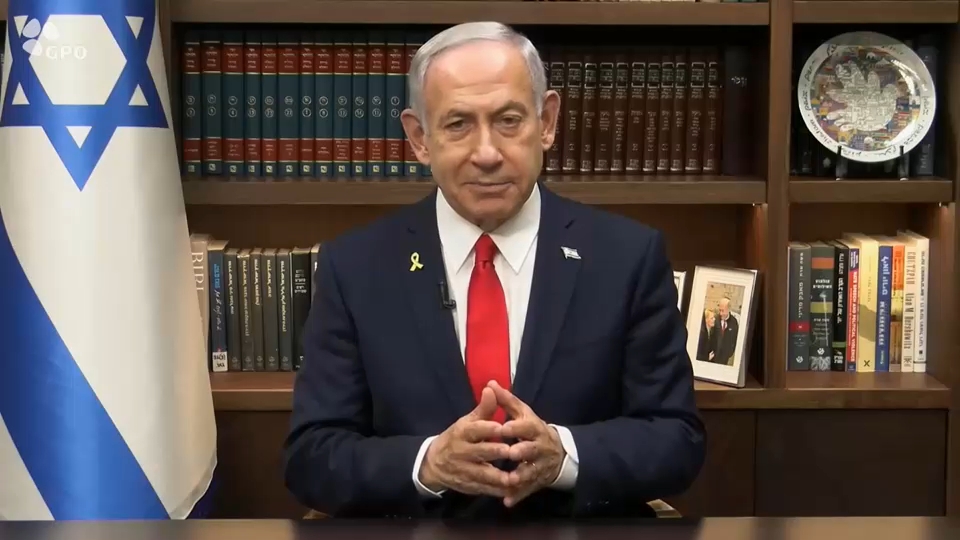
Israeli PM Netanyahu Seeks Presidential Pardon Amid Ongoing Corruption Trials
Israeli Prime Minister Benjamin Netanyahu has formally requested a pardon from President Isaac Herzog over multiple corruption cases that have been ongoing for the past five years.
According to a statement from the President’s office, Herzog will consider the request only after receiving opinions from justice officials, noting that the matter “carries with it significant implications.” No timeline has been given for a decision.
Netanyahu has been standing trial on charges of bribery, fraud, and breach of trust in connection with three separate cases.
He denies any wrongdoing and has repeatedly described the legal proceedings as a “witch hunt” by his political opponents.
In a video message released on Sunday, Netanyahu stated that while he would have preferred to see the judicial process through to the end, “national interest demanded otherwise.”
He argued that the trials were straining the nation and said a pardon could help restore national unity.
“I am certain, as are many others in the nation, that an immediate end to the trial would greatly help lower the flames and promote broad reconciliation—something our country desperately needs,” Netanyahu said.
He described the court’s requirement for him to testify three times a week as “an impossible demand.”
The allegations against the prime minister date back to 2020, when he became the first sitting Israeli leader to stand trial.
In the first case, prosecutors alleged that he received gifts, including cigars and bottles of champagne, from influential businessmen in exchange for favours.
In a second case, he was accused of offering to assist in improving the circulation of an Israeli newspaper in exchange for positive media coverage.
In the third, Netanyahu allegedly promoted regulatory decisions favourable to the controlling shareholder of a telecom company in return for favourable online coverage.
Opposition parties have strongly criticised Netanyahu’s move.
Yair Lapid, a former Prime Minister and current opposition leader, said that a pardon would require an admission of guilt, a demonstration of remorse, and Netanyahu’s immediate retirement from political life.
Left-wing politician Yair Golan described the pardon request as “only what the guilty would seek.”
Despite the opposition, Netanyahu’s right-wing Likud party and supporters have long backed a pardon for their leader.
Some international observers note that granting such a pardon, especially before a conviction, would be highly controversial in Israel’s democratic context.
Israel’s Basic Law allows the president to pardon criminals or reduce their sentences.
The High Court of Justice has previously ruled that the president can issue a pardon before a conviction if it serves the public interest or addresses extreme personal circumstances.
The issue is further complicated by Netanyahu’s political and security context.
Last year, the International Criminal Court issued an arrest warrant for Netanyahu and former Defence Minister Yoav Gallant over alleged war crimes and crimes against humanity committed during the Israel–Hamas conflict.
Netanyahu has condemned the ICC move as “antisemitic.”
Netanyahu’s request comes amid persistent public debates in Israel over judicial reform and governance.
News
Tinubu Sends 32 Additional Ambassadorial Nominees to Senate for Confirmation

Tinubu Sends 32 Additional Ambassadorial Nominees to Senate for Confirmation
President Bola Ahmed Tinubu has forwarded the names of 32 additional ambassadorial nominees to the Senate for confirmation, days after sending the first batch of three nominees.
In two separate letters addressed to Senate President Godswill Akpabio, President Tinubu requested the Senate to consider and expeditiously confirm 15 nominees as career ambassadors and 17 nominees as non-career ambassadors.
The lists include ten women, four in the career ambassador category and six in the non-career category.
Among the non-career ambassadorial nominees are notable personalities such as Barrister Ogbonnaya Kalu from Abia, a former presidential aide; Reno Omokri (Delta); former Chairman of the Independent National Electoral Commission (INEC), Mahmud Yakubu; former Ekiti First Lady, Erelu Angela Adebayo; and former Enugu Governor, Ifeanyi Ugwuanyi.
Other nominees include Tasiu Musa Maigari, former Speaker of the Katsina House of Assembly; Yakubu N. Gambo, former Plateau State Commissioner and former Deputy Executive Secretary of the Universal Basic Education Commission (UBEC); Professor Nora Ladi Daduut, former Senator from Plateau; Otunba Femi Pedro, former Deputy Governor of Lagos State; Chief Femi Fani-Kayode, former Aviation Minister from Osun State; and Barrister Nkechi Linda Ufochukwu from Anambra State.
The list also features former First Lady of Oyo, Fatima Florence Ajimobi; former Lagos Commissioner, Lola Akande; former Adamawa Senator, Grace Bent; former Governor of Abia, Victor Okezie Ikpeazu; Senator Jimoh Ibrahim from Ondo State; and former Nigerian Ambassador to the Holy See, Paul Oga Adikwu from Benue State.
Nominees for career ambassadorial and high commissioner positions include Enebechi Monica Okwuchukwu (Abia), Yakubu Nyaku Danladi (Taraba), Miamuna Ibrahim Besto (Adamawa), Musa Musa Abubakar (Kebbi), Syndoph Paebi Endoni (Bayelsa), Chima Geoffrey Lioma David (Ebonyi), and Mopelola Adeola-Ibrahim (Ogun).
Other career ambassadorial nominees are Abimbola Samuel Reuben (Ondo), Yvonne Ehinosen Odumah (Edo), Hamza Mohammed Salau (Niger), Shehu Barde (Katsina), Ahmed Mohammed Monguno (Borno), Muhammad Saidu Dahiru (Kaduna), Olatunji Ahmed Sulu Gambari (Kwara), and Wahab Adekola Akande (Osun).
According to the State House, the new nominees are expected to be posted to countries with which Nigeria maintains strategic and robust bilateral relations, including China, India, South Korea, Canada, Mexico, the United Arab Emirates, Qatar, South Africa, Kenya, as well as Permanent Missions such as the United Nations, UNESCO, and the African Union.
Confirmed nominees will learn of their diplomatic assignments after Senate approval.
Last week, President Tinubu had sent three ambassadorial nominees for screening and confirmation: Ambassador Ayodele Oke (Oyo), Ambassador Amin Mohammed Dalhatu (Jigawa), and Retired Colonel Lateef Kayode Are (Ogun).
The three are slated for postings to major diplomatic missions, including the United Kingdom, United States, or France, upon confirmation.
President Tinubu assured that additional nominees for ambassadorial positions would be announced in due course.
News
US–South Africa Rift Deepens Over G20 Boycott and Diplomatic Snubs
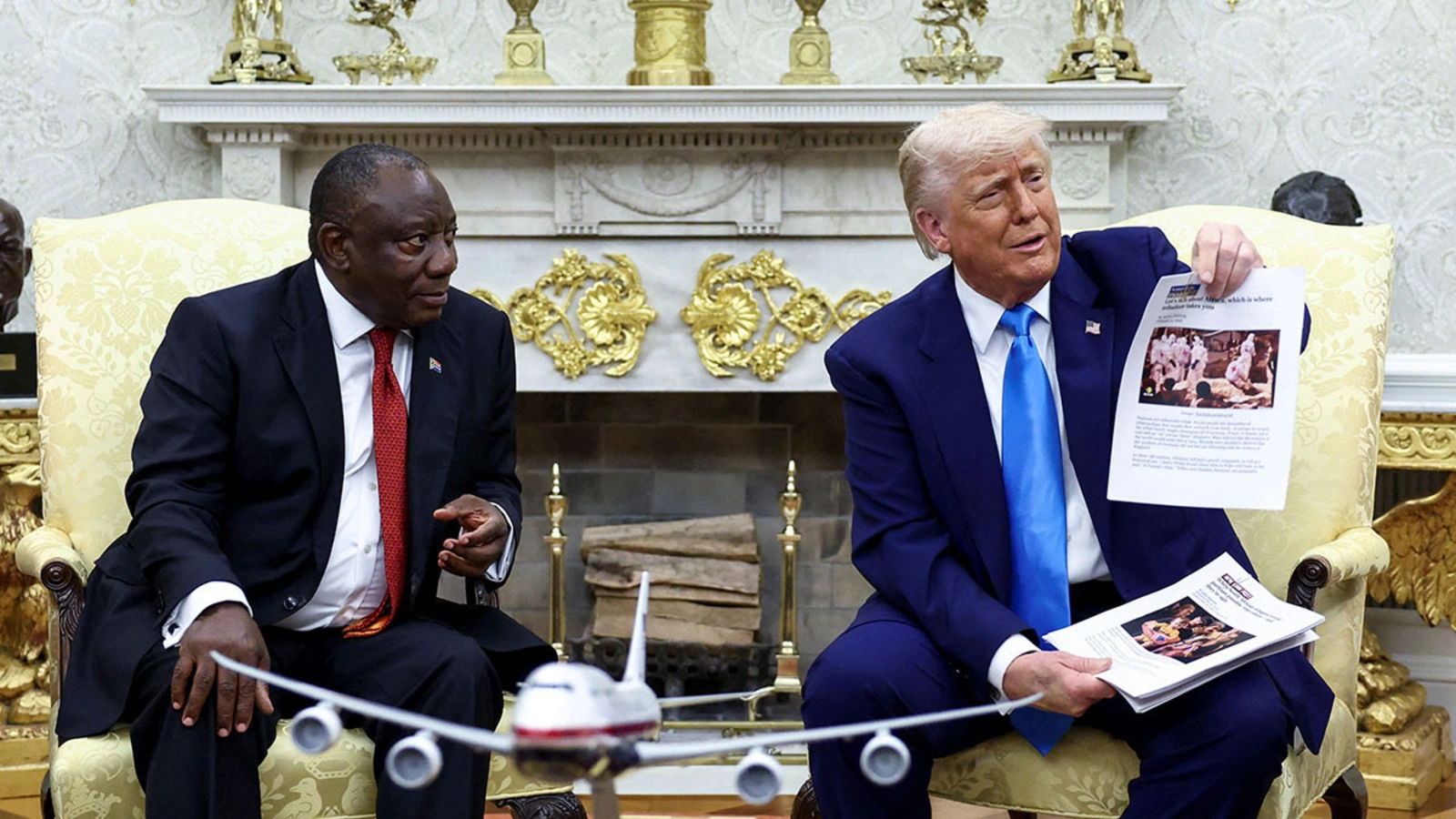
US–South Africa Rift Deepens Over G20 Boycott and Diplomatic Snubs
Diplomatic relations between the United States and South Africa have hit an unprecedented low, culminating in a series of public snubs, policy escalations, and accusations that threaten to reshape both nations’ global standing.
The latest flashpoint emerged following U.S. President Donald Trump’s decision to boycott the November 2025 Group of 20 (G20) summit in Johannesburg and his subsequent announcement that South Africa would be excluded from the 2026 G20 summit in Miami.
Trump’s absence from the Johannesburg summit was not merely a scheduling issue.
According to reports, the boycott was a deliberate protest, justified by his claim that South Africa persecutes its Afrikaner white minority, a charge that Pretoria has consistently denied.
The move left global observers questioning the United States’ commitment to multilateralism, especially at a forum tasked with addressing global challenges such as climate change, economic inequality, and security threats.
Marc H. Morial, president of the National Urban League, noted that “the G20 is a forum where the world’s largest economies confront shared challenges… For the U.S., participation is not optional—it is a solemn duty.” Skipping the summit, he argued, signals that America’s engagement in global affairs is increasingly negotiable.
The diplomatic rift, however, predates the summit.
In May 2025, President Trump reportedly showed South African President Cyril Ramaphosa doctored videos in the Oval Office, claiming they depicted anti-white discrimination in South Africa.
The videos, widely condemned as false, were described by critics as an “assault on truth and an affront to a nation that has stood as a beacon of democratic progress on the continent.”
Tensions escalated further on November 29, 2025, when Trump announced South Africa’s exclusion from the 2026 Miami G20 summit.
The U.S. president cited alleged human rights violations and revived claims of attacks on white farmers, describing it as a “campaign of dispossession—and even deadly persecution—targeting white farmers.”
Trump added on Truth Social that South Africa had “demonstrated to the world they were not a country worthy of membership anywhere.”
South Africa’s response was swift and firm. Pretoria rejected the allegations as misinformation and emphasized that the G20 presidency handover in Johannesburg had occurred properly despite the U.S. absence.
President Ramaphosa also bypassed protocol by refusing to hand over the G20 presidency to a junior U.S. official, instead conducting the handover at the foreign affairs ministry level, a move widely interpreted as a subtle diplomatic snub.
-

 News6 days ago
News6 days agoInsecurity: US Spy Plane Begins Operations in Nigeria
-

 News6 days ago
News6 days agoTinubu Sends 32 Additional Ambassadorial Nominees to Senate for Confirmation
-
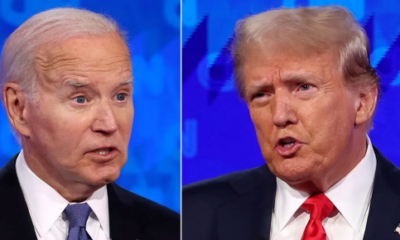
 Politics6 days ago
Politics6 days agoUS Shooting Sparks Controversy Over Afghan Vetting as Trump Blames Biden
-

 Analysis6 days ago
Analysis6 days agoAs G20 Moves On Without America, by Alabidun Shuaib AbdulRahman
-

 News6 days ago
News6 days agoIsraeli PM Netanyahu Seeks Presidential Pardon Amid Ongoing Corruption Trials
-
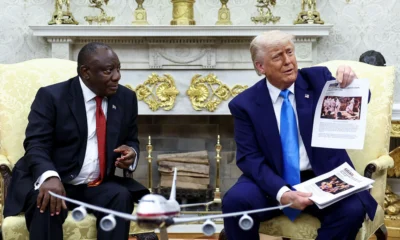
 News6 days ago
News6 days agoUS–South Africa Rift Deepens Over G20 Boycott and Diplomatic Snubs


